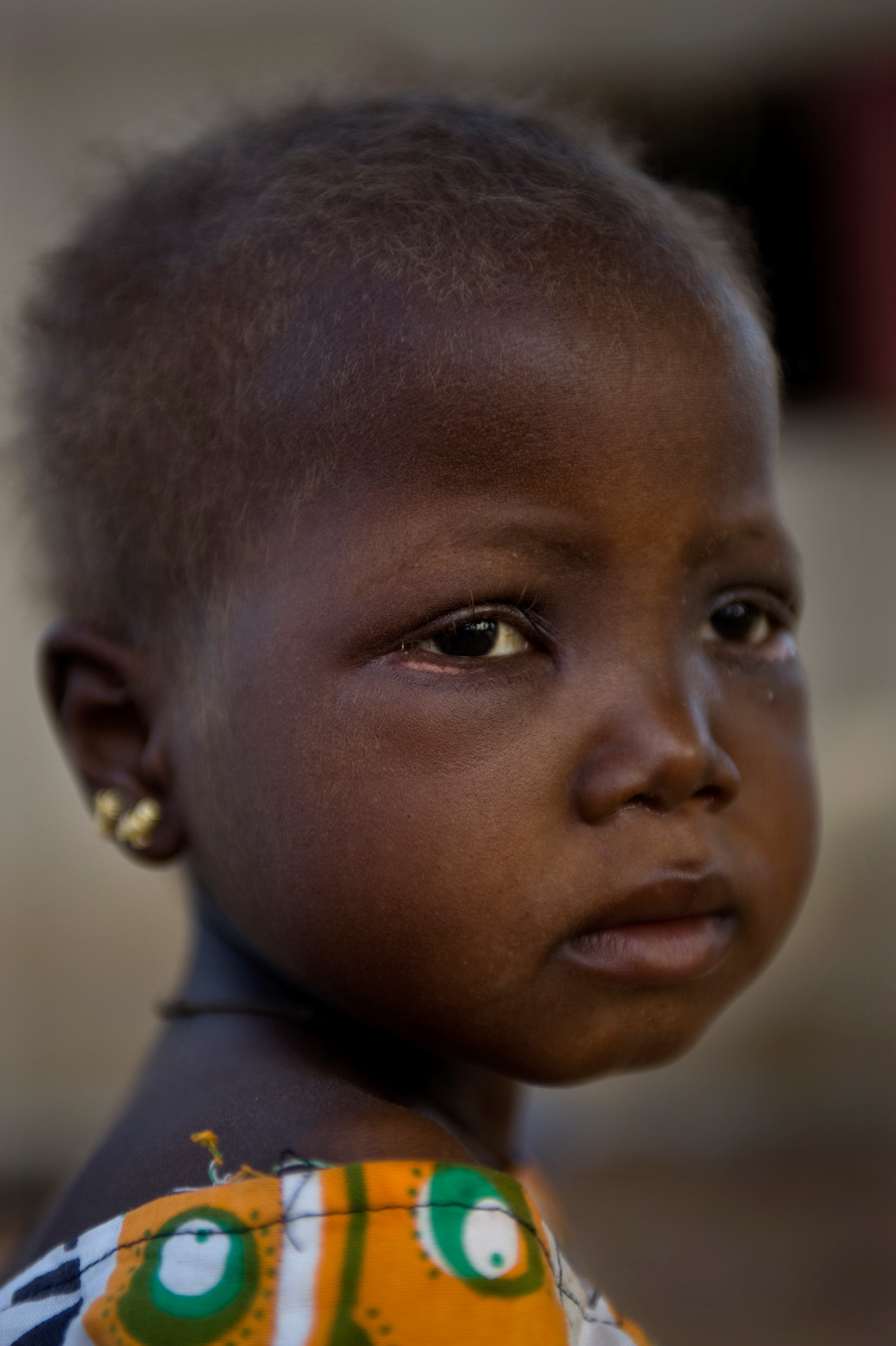
EDITOR’S NOTE: On Oct. 12, Southern Baptists will observe World Hunger Sunday and congregations across the United States will collect offerings for the Southern Baptist World Hunger Fund. Since its inception in 1974, Southern Baptists have given $230,877,650 through the fund. In 2007, Southern Baptists gave more than $5.5 million; in the first six months of 2008, $2.3 million has been received. For information on the Southern Baptist World Hunger Fund, visit worldhungerfund.com.
MALI, West Africa (BP)–In the Bambara culture, pride often prevents people from admitting they’re hungry. But evidence abounds.
Mud-wall granaries stand empty.
Five-year-old Mariama* sprouts reddish fuzz on top of her head — a sign of malnutrition.
When asked what his family has been eating lately, Mamadou* plucks a green leaf from a nearby tree.
“It tastes very bad,” he admits, “but … it keeps you alive.”
And when a sack breaks at the grain distribution site for a Southern Baptist hunger relief project, a village elder drops to his knees to gather grain out of the mud with his fingernails.
“I just know that when Christians come to work in a place, we can’t close our eyes to this hardship,” Steven Roach, an International Mission Board worker, said.
So he invited a team from the South Carolina Baptist Convention and requested Southern Baptist World Hunger Funds to help stave off starvation for about 31,000 people living in this area.
And this area, which covers about 120 villages and camps, is where Roach recently has seen unprecedented openness to the teachings of Jesus.
Four million Bambara people live throughout West Africa, and more than 99 percent are not Christians.
“We’ve been working in this particular area for about 18 months now,” Roach said. “Dozens of Christians are now meeting regularly for church where there were none before.”
Multiple churches from the United States, including Beulah Baptist Church in Hopkins, S.C., partner with Roach and send teams periodically to disciple new believers. But as the Americans guide the young churches and see a spiritual harvest ripen, they’ve noticed local crops of corn and millet failing and people struggling.
Mali is one of the poorest nations on the planet. In fact, the United Nations reports about one-third of Malian children are malnourished.
That’s largely because most Bambara farmers grow only enough food each year to feed their families, which leaves little room for unexpected disaster.
“It’s hard to pin down one reason why things got worse these last two years,” Roach said.
Worms infest some fields. Others suffer with the collapse of the national cotton market. The rest were destroyed by patchy rains, part of a climate change phenomenon that will continue to batter the region through 2050 with extreme floods and droughts, according to the United Nations Environment Programme.
Whatever the reasons, Roach hopes this grain gift shows the Bambara the compassion of Christ as it helps them make it to the next harvest.
Roach and his team of volunteers set up two distribution sites in village schools. They stacked 250 tons of grain at each site and called village chiefs from all over the region to receive their share of grain.
The roads aren’t fit for trucks, especially during rainy season, so villages sent hundreds of donkeys and rickety wooden carts, which arrived caked in mud.
Bambara elders and chiefs, draped in their religious robes and leather fetishes meant to ward off evil, gathered to thank the Americans and the new Christian Bambara men. The Christians took the opportunity to explain the gift and give the chiefs Christian literature in the Bambara language.
“We’re not trying to buy Christians,” Roach told the crowd of chiefs and elders, inciting a nervous laugh from the men. He explained that the gift was free, prompted by Christ’s compassion, and anyone interested in knowing more could ask.
And they did.
A village chief’s son revealed he had been interested in Jesus for a long time. After watching the “JESUS” film by moonlight, another man and son decided to follow Christ.
Even the local teacher of another religion said, “Change comes slowly, but one day I could see myself becoming a believer.”
The young Bambara churches in this area have agreed to follow through with these connections, bring the Gospel to these surrounding villages and start new churches.
“The people everywhere are thanking us,” reported Adema*, one of the Bambara Christians. “We can only hope this will show them who Jesus is and bring them to start meeting with us.”
–30–
*Names changed. Emily Peters is a regional writer covering West Africa for the International Mission Board. For information about the Southern Baptist World Hunger Fund, visit worldhungerfund.com.
FAST FACTS:
— Mali is about twice the size of Texas.
— 4 million Bambara live in West Africa — 99 percent are not Christian.
— The average Malian lives to age 50 and lives on less than $1,000 a year.
— The U.N. ranks Mali’s human development among the five lowest in the world.
— Malnutrition accounts for more than 50 percent of Mali’s infant mortality.
— Climate change will cause increasingly severe floods and droughts that will hinder harvests through 2050, according to climatologists.
— Since 2006, more than 200 Christians are meeting in three new churches where there were none before.
— The Southern Baptist World Hunger Fund sent 500 tons of grain to help feed 31,000 hungry people waiting for the next harvest.
Sources: IRIN News, United Nations, CIA Factbook, International Mission Board, China Daily
















